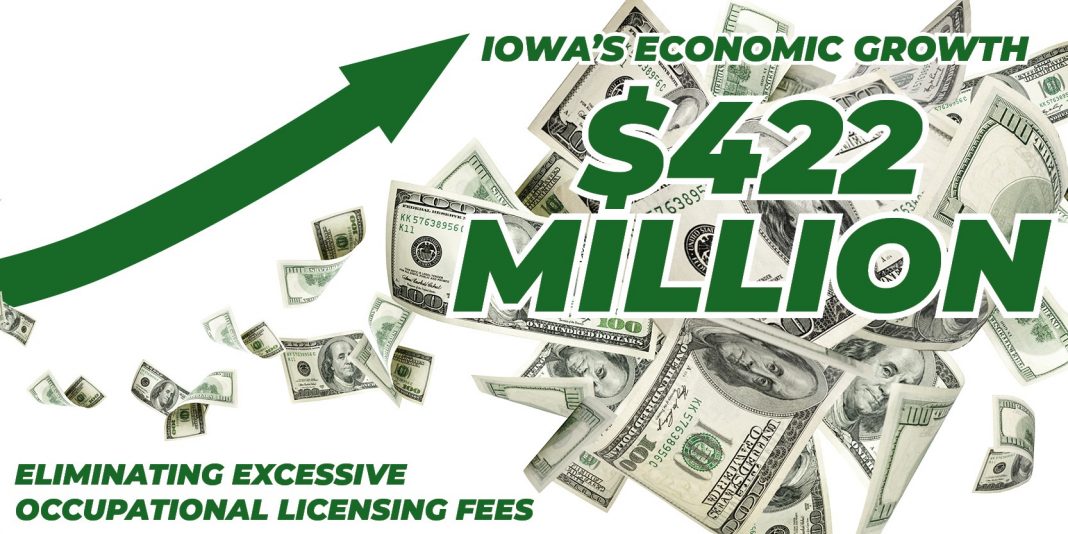A new study released last month by the Pioneer Institute estimates that state and local governments in Iowa could receive as much as $422 million in new tax revenues from growth generated by significant occupational licensing reform. That amount far exceeds the $161 million in occupational licensing fees that are currently collected in Iowa.
“Excessive occupational licensing fees are, effectively, a tax on entering the workforce. That’s a bad approach to taxation because it impedes citizens from gaining employment that would otherwise generate state income and sales tax revenue, and general economic vitality,” the report stated.
Despite the worthy goals of protecting the health and safety of the public, overly-burdensome occupational licensing often has numerous other unintended consequences. Entrepreneurship can be stifled, recidivism in the criminal justice system can be increased, barriers to entering the workforce can be erected, and consumer choice can be reduced. All of this adds up to lost economic growth.
Lawmakers should consider four key solutions that would improve occupational licensing in Iowa:
- A periodic review of all existing license requirements.
- An easier path back to the workforce for Iowans with past criminal convictions.
- Universal recognition for license holders in other states.
- Fee waivers for workers under a specified income level.
Iowans for Tax Relief made occupational licensing reform a priority during the 2019 legislative session and we continue to advocate that cuts be made to a hefty red tape tax in our state.












